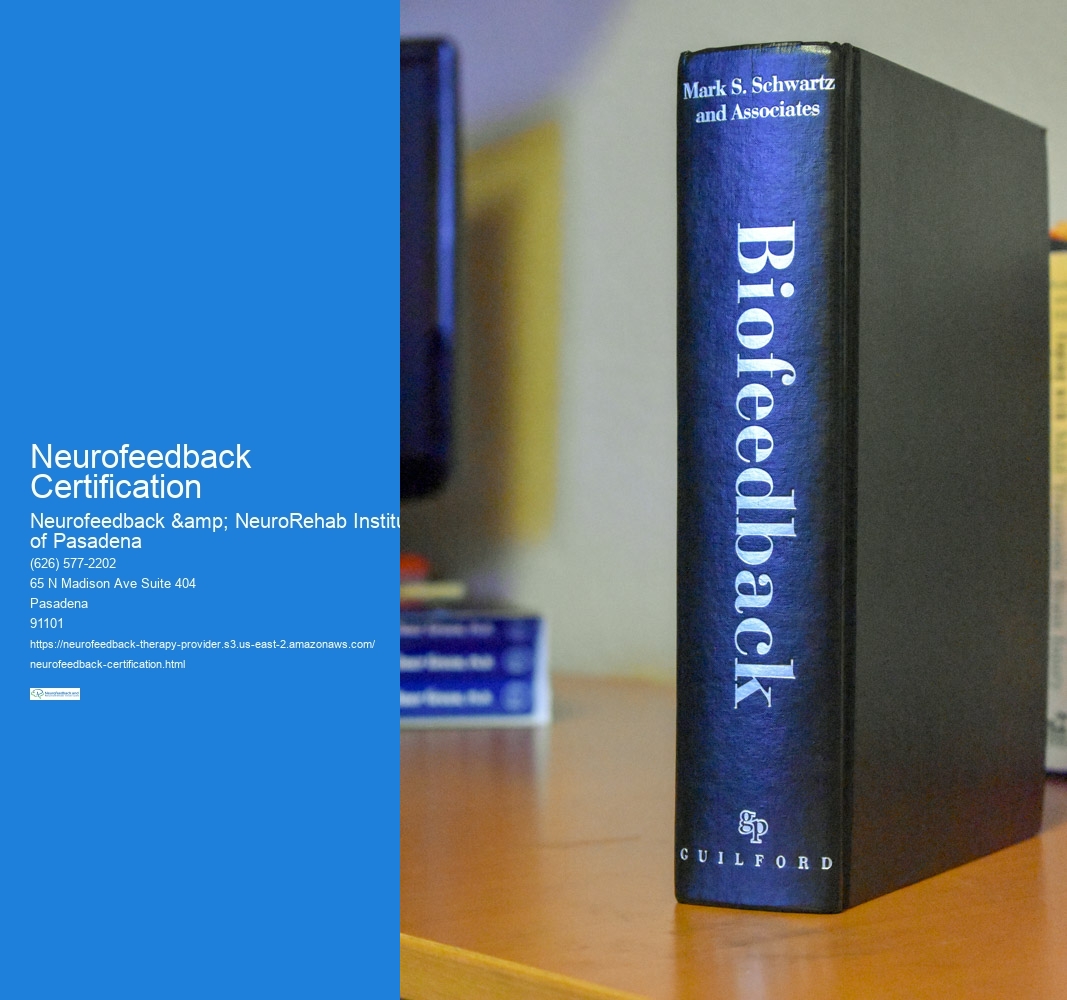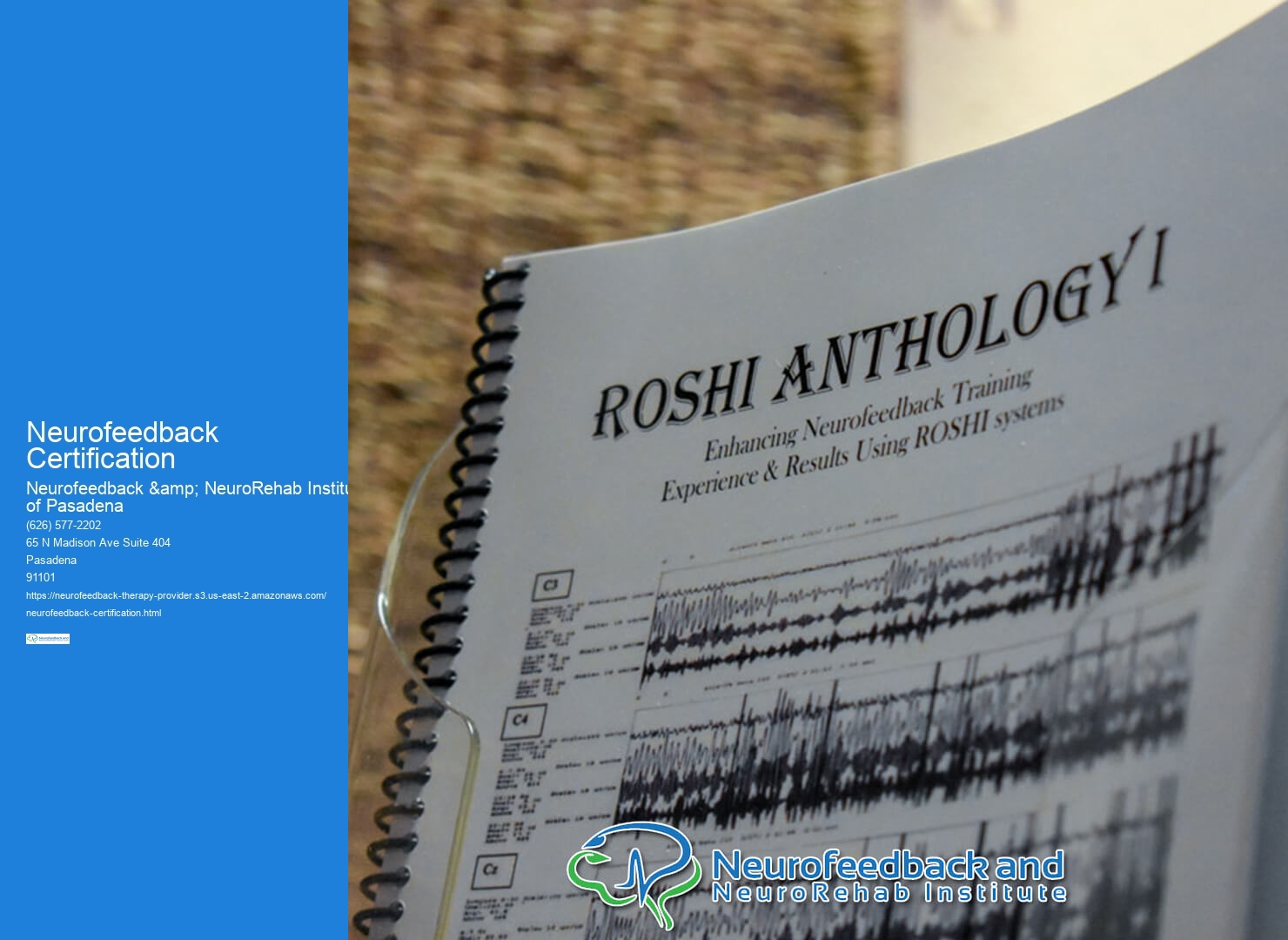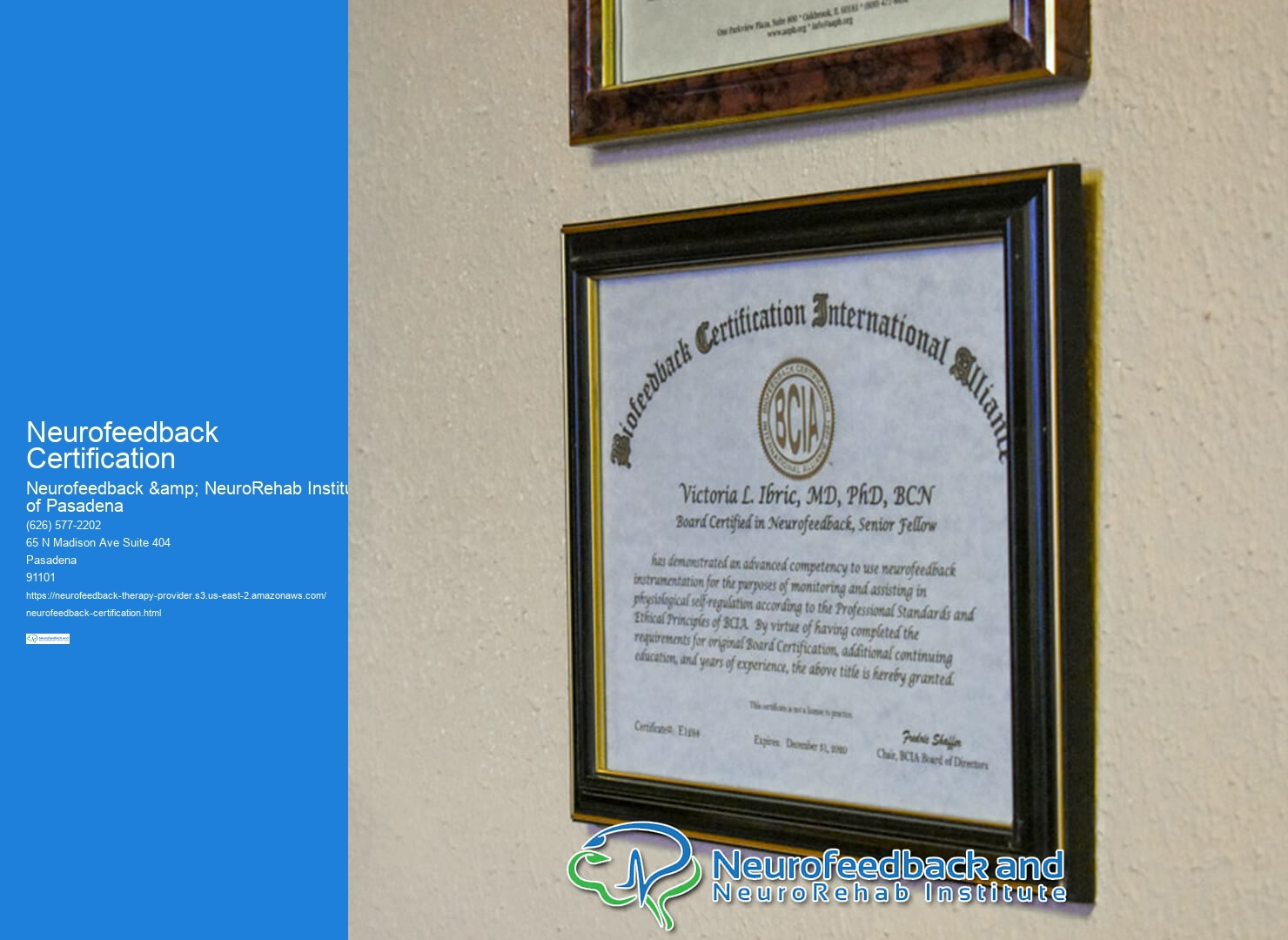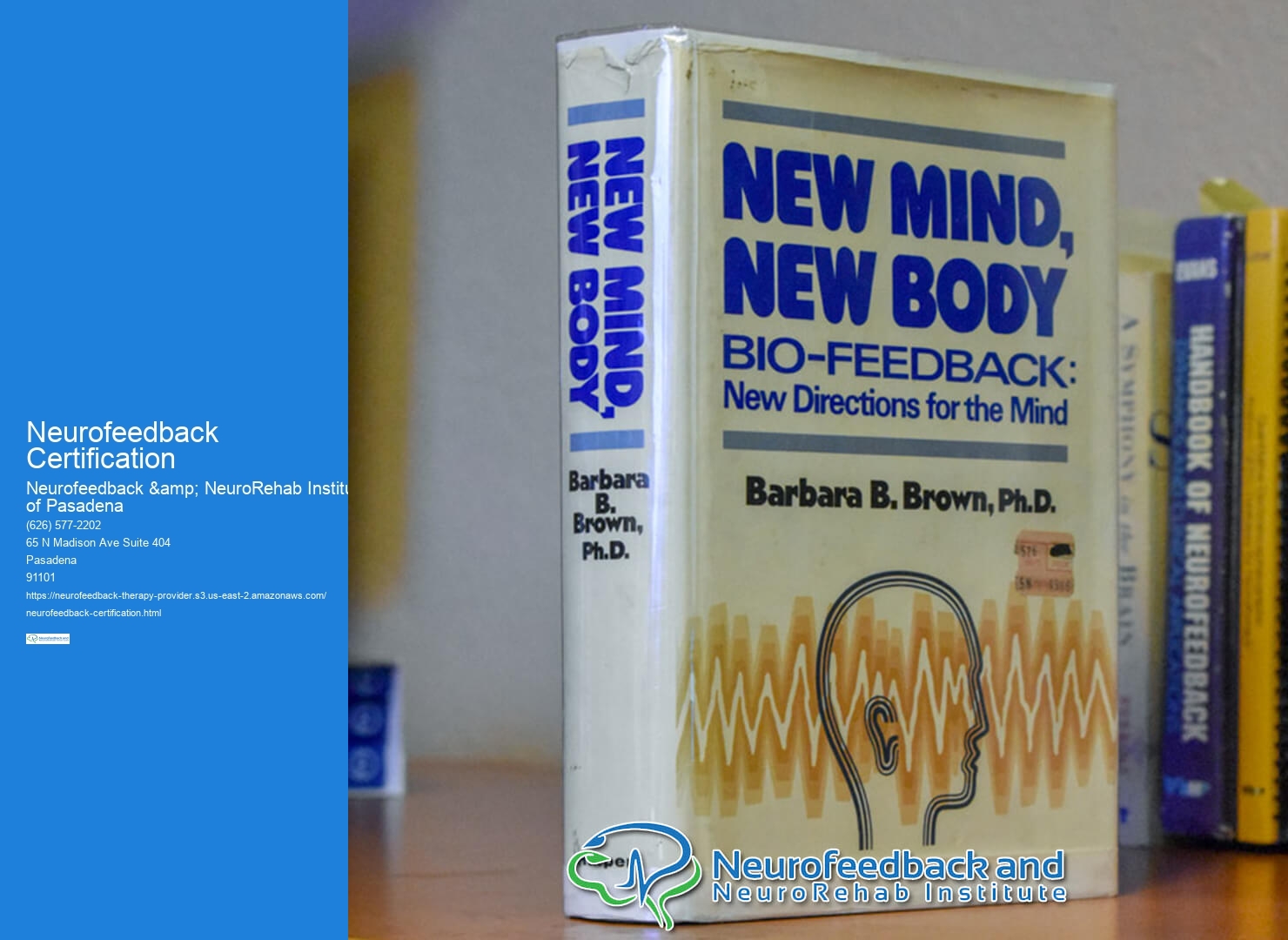

To obtain a neurofeedback certification, individuals typically need to have a background in a relevant field such as psychology, counseling, or neuroscience. Specific requirements may vary by certification program, but generally, candidates are required to complete a certain number of training hours, often ranging from 36 to 100 hours, in neurofeedback techniques and applications. EEG Neurofeedback Specialist Additionally, candidates may need to demonstrate proficiency in conducting neurofeedback sessions and interpreting EEG data. Some certification programs may also require candidates to pass a written exam to demonstrate their knowledge of neurofeedback principles and practices.
The process of obtaining a neurofeedback certification usually involves completing a comprehensive training program that covers the theoretical foundations of neurofeedback, practical application of neurofeedback techniques, and hands-on experience with EEG equipment. Candidates may need to complete a certain number of supervised clinical hours, where they work with clients under the guidance of experienced practitioners. Additionally, some certification programs may require candidates to pass a written exam to assess their understanding of neurofeedback concepts and their ability to apply them in clinical settings.
Obtaining a neurofeedback certification can offer several benefits for professionals in the field of mental health or neurology. It can enhance their credibility and expertise in utilizing neurofeedback as a therapeutic intervention for various neurological and psychological conditions. Certification can also provide professionals with a structured framework for integrating neurofeedback into their practice, ensuring that they adhere to best practices and ethical standards. Neurofeedback Training Center Furthermore, certification may open up new career opportunities and allow professionals to attract clients seeking qualified neurofeedback practitioners.

Neurofeedback certification programs may offer different levels or specializations to cater to the diverse needs and interests of practitioners. These levels could include basic certification for entry-level practitioners, advanced certification for those seeking to deepen their expertise, and specialized certifications for specific applications such as neurofeedback for ADHD, anxiety, or traumatic brain injury. Each level or specialization may have its own set of training requirements, clinical experience criteria, and exams to demonstrate proficiency in the respective area of focus.
Neurofeedback TechnicianNeurofeedback certification differs from other forms of biofeedback or neurotherapy certifications in its specific focus on using EEG technology to train and regulate brain activity. While biofeedback encompasses a broader range of physiological monitoring and regulation techniques, neurofeedback specifically targets the central nervous system and brain function. Neurofeedback Program Coordinator Neurotherapy certifications may encompass a wider array of therapeutic modalities for neurological conditions, whereas neurofeedback certification is centered on the use of EEG-based feedback to modulate brainwave patterns.

The costs associated with pursuing a neurofeedback certification can vary depending on the certification program, training provider, and location. EEG Biofeedback Center Training programs may range from a few thousand dollars to over ten thousand dollars, covering the cost of workshops, materials, and supervision. Additionally, candidates may need to budget for the expenses related to attending training sessions, obtaining EEG equipment, and preparing for certification exams. Ongoing certification maintenance may involve membership fees, continuing education requirements, and recertification exams, which should be factored into the overall cost.
Neurofeedback certification programs may seek accreditation and recognition from professional organizations such as the Biofeedback Certification International Alliance (BCIA) or the International Society for Neurofeedback and Research (ISNR). Accreditation by these organizations signifies that the certification program meets established standards for quality and rigor in neurofeedback training and education. Additionally, some certification programs may be recognized by regulatory bodies in the mental health or healthcare field, which can enhance the credibility and acceptance of the certification within the professional community. It's important for individuals pursuing neurofeedback certification to verify the accreditation and recognition status of the program they are considering to ensure its legitimacy and value.

A typical LORETA Z-Score Neurofeedback session usually lasts around 45 to 60 minutes. The duration may vary depending on the specific protocol and individual client needs. During the session, the neurofeedback practitioner will monitor and analyze the brainwave activity using advanced neuroimaging technology to provide real-time feedback to the client. The session involves the application of specific neurofeedback protocols tailored to the client's unique brainwave patterns, aiming to optimize brain function and promote overall well-being. The practitioner may also incorporate additional techniques such as relaxation exercises or cognitive training to enhance the effectiveness of the session. Overall, the duration of the session is designed to ensure comprehensive and personalized neurofeedback training for the client.
Neurofeedback training has gained attention as a potential tool for enhancing peak athletic performance. By utilizing advanced brainwave monitoring and feedback techniques, athletes can optimize their cognitive and emotional states to achieve superior focus, concentration, and stress management. This specialized form of training involves real-time monitoring of brain activity, allowing athletes to learn how to regulate their mental states for improved performance. Through neurofeedback, athletes can develop greater self-awareness, mental resilience, and the ability to enter "flow states" more consistently, leading to enhanced athletic prowess. This innovative approach aligns with the growing interest in holistic performance enhancement methods that address the interconnectedness of mind and body in athletic achievement.
Yes, neurofeedback can be conducted remotely or online through the use of specialized equipment and software. This approach allows individuals to receive neurofeedback training from the comfort of their own homes, eliminating the need for in-person sessions. Remote neurofeedback sessions typically involve the use of EEG (electroencephalogram) equipment to monitor brainwave activity, along with software that provides real-time feedback and guidance to the individual undergoing training. This method enables practitioners to remotely assess and train brain function, offering a convenient and accessible option for those seeking neurofeedback therapy.
Neurofeedback has shown promise as a potential intervention for individuals with traumatic brain injuries (TBIs). Research suggests that neurofeedback training may help improve cognitive function, attention, and emotional regulation in TBI patients. By utilizing real-time monitoring of brain activity and providing feedback to the individual, neurofeedback aims to promote self-regulation and enhance neural plasticity. This non-invasive approach targets specific brain regions and neural networks, offering personalized and adaptive training to address the unique needs of TBI survivors. Furthermore, neurofeedback may complement traditional rehabilitation strategies by targeting underlying neurophysiological dysregulation associated with TBIs. However, it's essential for individuals with TBIs to consult with healthcare professionals experienced in neurofeedback to determine the suitability and potential benefits of this intervention in their specific case.
Neurofeedback has shown promise in enhancing emotional regulation in children by targeting specific brainwave patterns associated with emotional processing and regulation. By providing real-time feedback on brain activity, neurofeedback training can help children learn to self-regulate their emotions more effectively. This non-invasive technique utilizes operant conditioning principles to encourage the brain to produce more desirable patterns of neural activity, leading to improved emotional control and resilience. Research suggests that neurofeedback may be particularly beneficial for children with conditions such as ADHD, anxiety, and autism spectrum disorders, as it can help them develop greater self-awareness and self-regulation skills. Additionally, neurofeedback has been found to have a positive impact on related areas such as attention, behavior, and cognitive functioning, contributing to overall emotional well-being in children.
Neurofeedback therapy typically does not have strict age restrictions, as it can be beneficial for individuals across the lifespan, from children to older adults. However, the specific application of neurofeedback may vary depending on the age and developmental stage of the individual. For instance, neurofeedback protocols for children may focus on attention, behavior, and emotional regulation, while those for adults may target stress management, cognitive enhancement, or mood regulation. Additionally, the equipment and techniques used in neurofeedback may be adapted to suit the needs and comfort of different age groups, ensuring a safe and effective experience for all participants. It's important for individuals or parents/guardians to consult with a qualified healthcare professional or neurofeedback practitioner to determine the appropriateness of neurofeedback therapy for a specific age group and to ensure that the treatment is tailored to meet their unique needs.
Neurofeedback has shown promise as a complementary therapy for cancer patients, as it can help address the psychological and emotional aspects of the disease. By utilizing neurofeedback, cancer patients may experience reduced anxiety, improved sleep, and enhanced overall well-being. This non-invasive technique involves training the brain to regulate its activity, potentially leading to better stress management and emotional resilience. Additionally, neurofeedback may aid in mitigating the side effects of cancer treatment, such as chemotherapy-induced cognitive impairment. While further research is needed to fully understand the extent of its benefits, neurofeedback presents a potential avenue for holistic support in the comprehensive care of cancer patients.